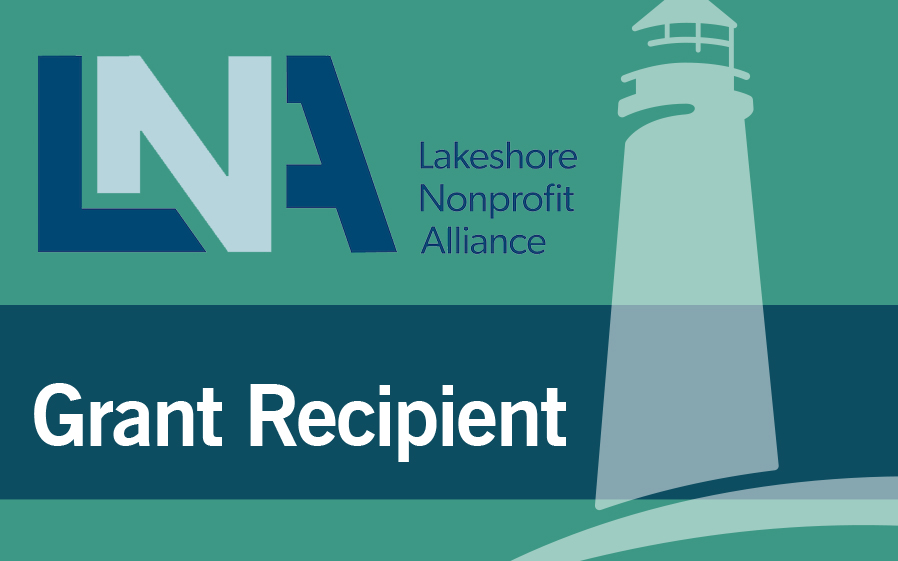The Lakeshore Nonprofit Alliance (LNA) provides programs and services for West Michigan’s nonprofit community. They believe that nonprofit organizations (or as we at the GHACF like to think of them, “for-impact” organizations) are a cornerstone of what makes this community great, and LNA aims to strengthen these organizations’ ability to successfully accomplish their missions by working together.

Patrick Cisler
LNA’s primary focus is to listen to the needs, challenges, and frustrations of local nonprofit organizations and work to provide high-quality, low-cost benefits and services in response. They believe that collaboration is such a key part of the solution that they include “by working together” as part of their Mission Statement. “We work together with our nonprofit partners to do good work,” said Patrick Cisler, Executive Director of LNA. “None of us can succeed in isolation.”
In 2019, LNA partnered with the Ottawa County Planning and Performance Improvement Department to conduct a survey of area nonprofit organizations. The outcome is the Nonprofit Community Assessment, a foundational data collection project to help measure the overall health of the local sector. 64 organizations from Ottawa County completed the assessment.
“This report is first of its kind. We’re fortunate because very few communities have this kind of local, concentrated data. The assessment showed us that, as a whole, our partner organizations are doing well, particularly in terms of financial resiliency.” –Patrick Cisler
Based on the reported level of cash flow on hand and the high level of unrestricted dollars, Ottawa County nonprofit organizations are good stewards of their resources and, through thoughtful planning, have established financial resilience that will allow them to continue with their missions in leaner years. The average number of annual donors—which includes individuals, corporations, and other organizations—is 888 per organization.
“The report also shows that our nonprofit partners greatly value collaboration, which is essential to what we do,” said Patrick. Many of the issue facing our community cannot be solved by one organization, and when our community’s organizations work together, we all succeed. 88% of organizations have built and leveraged relationships with other for-profit, nonprofit, or public sector entities around common goals, and 95% plan to partner with other nonprofit organizations in the coming year.
The assessment provides benefit and compensation data that helps the larger sector create competitive salary and benefit packages that attract and secure talent. The assessment also highlights a few common concerns for our partners:
- Local nonprofit boards are not as reflective of the larger community in terms of race and age diversity, with only 13% of board members identifying as non-White/Caucasian and 11% being between ages of 21-34.
- Nonprofit leaders have a high level of satisfaction with their current staff but, similar to other industries currently competing for talent in a low unemployment environment, have a great concern over talent retention.
The report also exposed a few concerns about board practices, including a lack of strategic recruitment process for future board members, board engagement in fundraising activities, and proper evaluation of executive directors by boards. While challenges exist related to boards, there is also a strong desire by local board members to receive additional board training to continue to serve our communities well.
LNA currently offers a “How to be an Effective Board Member” workshop, similar to the previously offered Nonprofit Board Certification facilitated by the Dorothy A. Johnson Center for Philanthropy, that teaches the primary responsibilities of being a board member, ideas for how to structure a board, how to recruit board members, and how to engage the board in fundraising, among other things. With the demand for additional training, LNA is preparing to launch the next step to that training, which will pick up where the introductory workshop left off. The 2.0 training will cover the board’s role in strategic planning, board engagement, and handling conflict on the board.
Lastly, the nonprofit assessment identified a desire for additional leadership development opportunities for nonprofit staff and, “thanks again to the community foundation, we recently were able to launch a year-long immersive leadership development program for Executive Directors called Nonprofit LEAD 24/7,” said Patrick. “This program helps executives grow in their individual skillset as leaders while also growing in relationship with one another.”
The Nonprofit Community Assessment is one example of the LNA’s ambitious effort to better understand the collective health of our local sector. Through LNA’s leadership we are able to not only better understand the overall impact of nonprofit organizations, but also work together to pro-actively address their most pressing needs.
LNA received a $250,000 five-year general-operating award from the GHACF in spring of 2018.
For more information about our grants program, please visit ghacf.org/grants or contact Holly Cole, Vice President of Grants & Program at hcole@ghacf.org.
